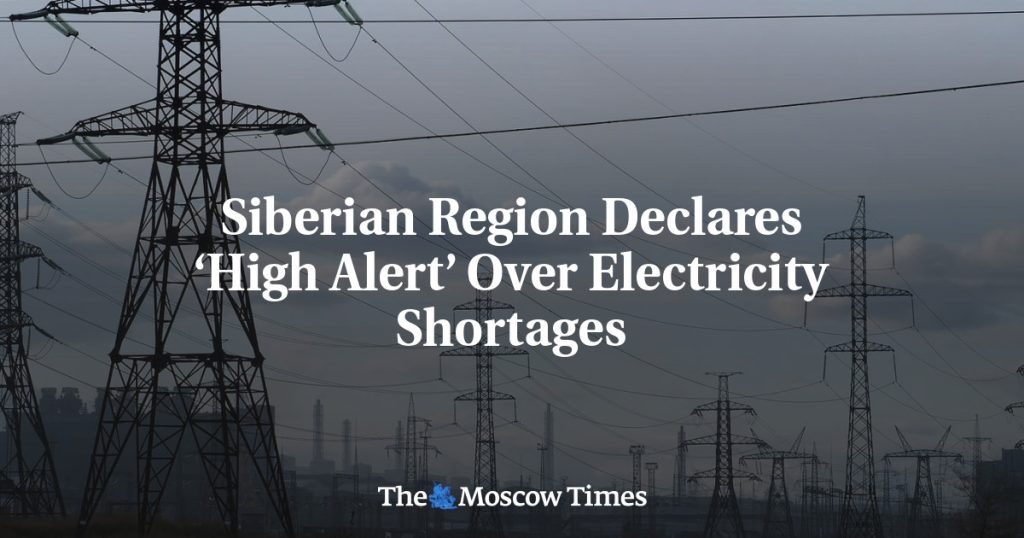Authorities in Russia’s Siberian region of Irkutsk have declared a state of “high alert” due to electricity shortages, as stated in a government decree issued by Governor Igor Kobzev. The decree mandates local emergency services to develop additional plans for dealing with widespread power cuts and ensure that local emergency response teams are adequately prepared. Furthermore, local authorities have been directed to secure additional fuel reserves and backup power sources to address the shortage effectively.
In neighboring Buryatia, authorities have implemented power supply restrictions that could impact up to 30,000 residents in the capital city of Ulan-Ude and its surrounding areas. This action comes as a response to the inability of the existing electricity infrastructure to cope with the increased demand, particularly as more residents switch to electric heating due to the escalating cost of firewood and other fuels. Buryatia, a region often ranked among the poorest in Russia, would require substantial investments of at least 17 billion rubles ($178 million) to upgrade its energy infrastructure, according to reports.
The challenging situation in these regions points to broader issues facing parts of Russia, including inadequate infrastructure and economic constraints that hinder essential services like electricity provision. The inability of the current systems to meet the growing demands for energy highlights the need for significant investments in upgrading infrastructure to ensure reliable power supply. The consequences of these electricity shortages are not only inconvenient but can also have serious implications for the well-being and safety of residents, particularly during harsh Siberian winters.
Efforts to address the electricity shortages in Irkutsk and Buryatia include prioritizing the development of additional emergency response plans and assessing the readiness of local teams to handle power cuts effectively. Securing additional fuel reserves and backup power sources is crucial to mitigating the impact of the shortages and ensuring that essential services remain operational. These measures are essential in safeguarding the welfare of residents who rely on electricity for heating, lighting, and other daily needs.
The situation highlights the vulnerability of regions like Irkutsk and Buryatia, where economic challenges and inadequate infrastructure exacerbate the impact of electricity shortages on residents. The need for substantial investments to upgrade energy infrastructure underscores the importance of long-term planning and strategic decision-making to prevent similar crises in the future. Addressing these challenges requires a coordinated effort from local authorities, emergency services, and the government to ensure that residents have reliable access to essential services like electricity.
In the face of these electricity shortages and the broader challenges confronting regions like Irkutsk and Buryatia, support for independent journalism, such as The Moscow Times, is crucial in raising awareness and informing the public about critical issues affecting communities. The ongoing efforts to silence independent media outlets in Russia underline the importance of defending press freedom and ensuring that accurate, unbiased reporting can continue to shed light on issues that impact the lives of residents. By supporting independent journalism, individuals can contribute to upholding the principles of openness and transparency in addressing challenges like electricity shortages in Siberia and beyond.


